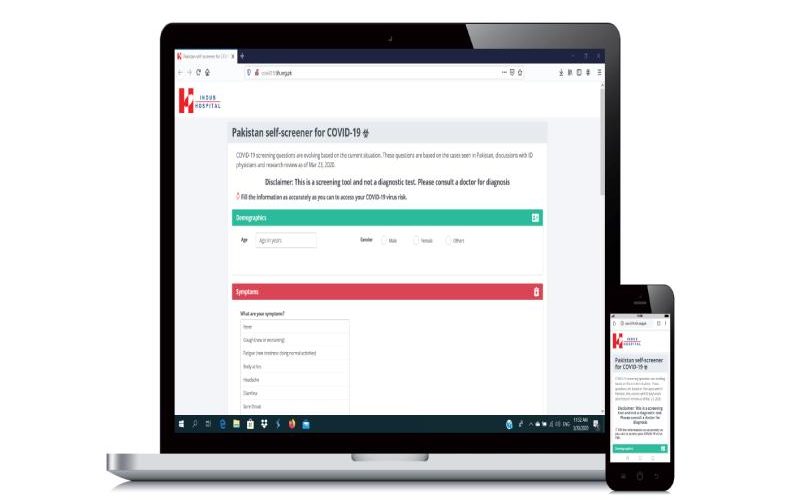DO YOU THINK YOU HAVE CORONAVIRUS? ASSESS YOURSELF THROUGH INDUS HEALTH NETWORK’S PAKISTAN-SPECIFIC SELF-SCREENING TOOL
Karachi
The Indus Health Network (IHN) has launched a Pakistan-specific COVID-19 self-screening tool to help people self-check their symptoms and risk factors from home. http://covid19.tih.org.pk/
Dr. Naila Baig-Ansari, Chair of the Indus Hospital Research Center (IHRC) stated that the need for this tool arose when people started panicking and heading to the hospital requesting to be tested. Given the limited number of COVID-19 testing kits, only the ones who were meeting the high suspicion criteria were being tested and those with lesser symptoms or stable were being advised to self-isolate at home and monitor themselves for 14 days.
Dr. Baig-Ansari, a Ph.D. in Epidemiology said that to help her clinical colleagues in the frontline, the research team decided to covert the screening and triage guidelines circulated regularly to the clinical faculty into an easy self-screening tool. The guidelines are made as part of the COVID-19 guideline task team lead by Dr. Samreen Sarfaraz, Infectious Disease consultant. The uniqueness of the guidelines is that it incorporates the most current information about COVID-19 patients being shared within the Pakistani medical community with the global recommendations. The guidelines are being used across all IHN Hospitals and primary care centers.
The tool that is based on the combined efforts of the Guidelines Task team, the Research Center team, and Indus’ IT Department. The Urdu version is being tested and will also be incorporated shortly. Dr. Baig-Ansari said the self-screener will continue to be updated as we find out more about the epidemiology of COVID-19 patients in Pakistan.
The IHN team encourages people to sign-up to receive updates of when the screening criteria changes in this tool. We acknowledge all the healthcare providers from different hospitals for sharing their experiences and the global community. In the age of COVID-19, the more accurate and appropriate information we share with each other, the better off we will all be.
The self-screening tool is part of IHN’s COVID-19 initiatives. The network is an active partner of Government of Sind’s anti-COVID-19 movement and has taken various steps to control the outbreak of the novel coronavirus.




